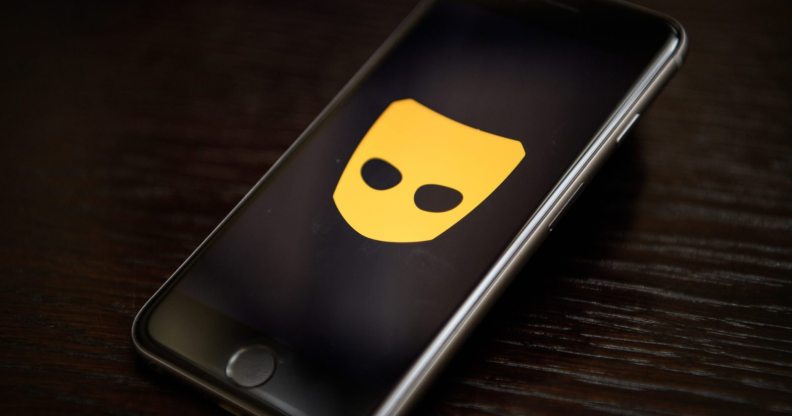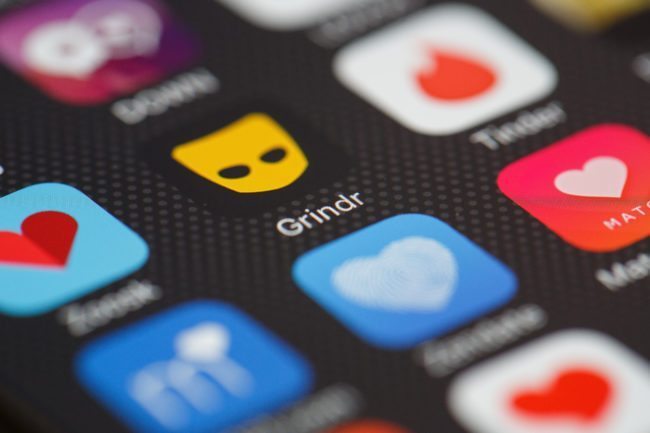Chinese tech company completes purchase of remaining stake in Grindr

Code words and symbols are used to refer to drugs on the app (Leon Neal/Getty Images)
A Chinese tech company has bought the remaining stake in gay dating app Grindr.
Tech giant Kunlun Group Limited has finalised the purchase of the remaining stake in Grindr from founder Joel Simkhai.
The mobile gaming company now owns 100 percent of the gay social network.
Simkhai, who is currently the CEO of the company, left Grindr. Yahui Zhou, the chairman of the board has taken over as interim CEO.

(Getty)
The current vice-chairman Wei Zhou has also been named executive vice-chairman and CFO.
Another new appointment was made as former Facebook and Instagram employee Scott Chen joined the company as CTO.
The new appointments took place on 5 January.
RELATED: Grindr is no longer ‘men-only’ as update adds support for women, trans people
“I’m beyond proud of what we’ve built as a team and how Grindr has been able to make a meaningful and lasting contribution to the global community,” says Simkhai.

(Getty)
“We have achieved our success because of the strength and global reach of our community. I look forward to Grindr and Kunlun’s continued commitment to building tolerance, equality, and respect around the world.”
And Zhou added: “On behalf of everyone at Grindr, we would like to thank Joel for his inspiration and service as the founder of Grindr, and wish him all the best in the future.

“Looking forward, we are extremely excited about the excellent work Grindr is doing in becoming a leading global technology company, serving and supporting our users no matter where they are in the world.”
Kunlun Tech announced its acquisition last year, after initially investing in the company back in January 2016.

It originally bought 61.5% of the gay social-network for $93 million, and has now purchased the remaining 38.5% stake in Grindr LLC for $152 million.
Purchasing the app will improve the company’s position in the market, with three million people using Grindr each day.
When the company made its initial acquisition, Grindr’s founder, Joel Simkhai, tried to reassure users by insisting the app would mostly be “business as usual.”
China has restrictive laws on media, political information and ‘pornography’ which mean the app can be limited in parts of the country.
Although China has Grindr users, many reportedly complain of access problems.
RELATED: 17 Grindr fails that take awkward to a new level.
Grindr is not the largest app of this type in China, with Blued, started by former policeman Geng Le in 2013, having more users.
Blued has a stricter user policy and markets itself more as a lifestyle brand than a dating app alone.
Grindr recently appointed an editor as it seeks to create news and lifestyle stories.
However, question marks have been raised over its editorial policy since the Chinese buy-out, with fears news could be restricted with its new ownership.
Grindr has faced repeated controversy over fake profiles and user privacy.
The company was facing a lawsuit after 700 men turned up to a man’s home for sex from fake profiles.
Matthew Herrick, 32, alleged he had dozens of reports of fake profiles ignored by the gay dating app, saying “my entire life has been stolen from me”.
He accused Grindr of negligence, intentional infliction of emotional distress, false advertising, and deceptive business practices for allowing him to be impersonated and turned into an unwitting beacon for stalkers and harassers.
However, it has since been suggested the app might not be liable, as the federal Communications Decency Act (CDA) could apply meaning Grindr is simply a “neutral” app that displays third-party content.

